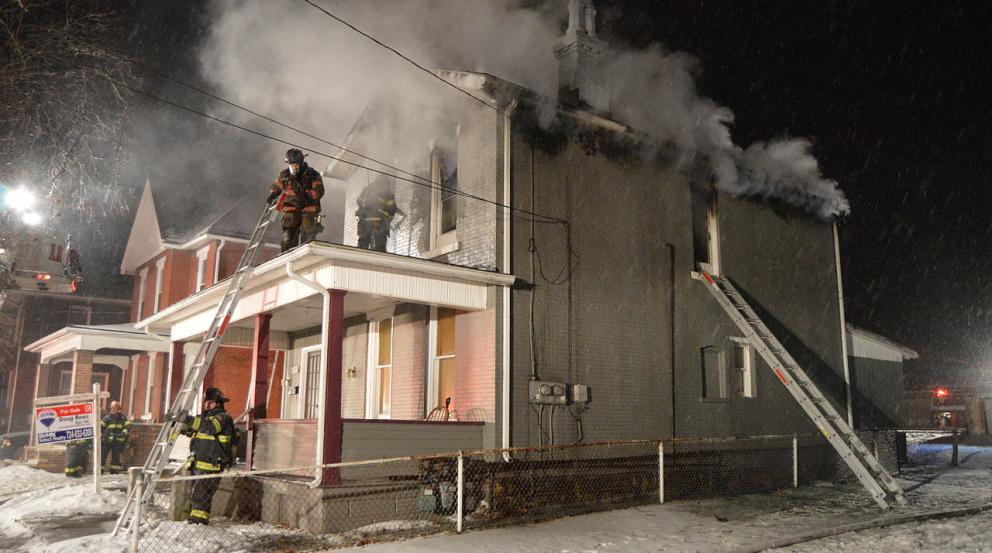You are here
Fire Safety with Pets

Fires are a serious concern for any homeowner, but if you also have pets living under your roof, there are several additional considerations to keep in mind. The steps outlined in this article include ways to prevent fires as well as precautions you can take to handle fires safely. In the event of a fire, or if you suspect one is breaking out, always call 911 immediately.
Hazards
These items are probable sources of fire, especially around active pets and wagging tails. Always make sure these are secured or tucked away when pets are around.
- Lit candles
- Space heaters
- Irons
- Hair dryers
- Halogen lamps
- Pets may chew through loose wires or electrical cords
- Uncovered fireplaces
- Stove knobs
Precautions
Consider implementing the steps outlined below to reduce the danger in the event of a fire and to keep your whole family organized and safe.
- Install smoke and carbon monoxide detectors - consider installing emergency service-monitored detectors in case of a fire when you are away from home
- Consider electronic “flameless candles”
- Change detector batteries at least twice annually and test them regularly
- Designate a “pet-free area” around any fireplaces to prevent accidental burns
- Never leave a pet alone with an open flame
- Remove or cover stove knobs, discourage climbing on the kitchen counters
- Keep tagged collars on your pets or have them microchipped in case you are separated
- Create and practice an evacuation plan for your family that includes your pets
- Keep leashes, pet carriers, and treats near the door to make evacuating your pet easier
- Have a fire extinguisher readily available
- Have a first aid kit readily available
- Keep a list of pets secured near the entrance of the house, or taped to the inside of your window, easily findable for firefighters
- Do not go back into a fire to retrieve your pet. Wait for firefighters and inform them about your pet, and where they can find it
These tips can’t guarantee that you’ll never have to handle a fire at home, but they should help keep you and your family safe in the event that one does occur. Other types of emergencies have their own considerations, so talk to your veterinarian for more information on how you can keep your animals calm and protected in a crisis.
Resources
